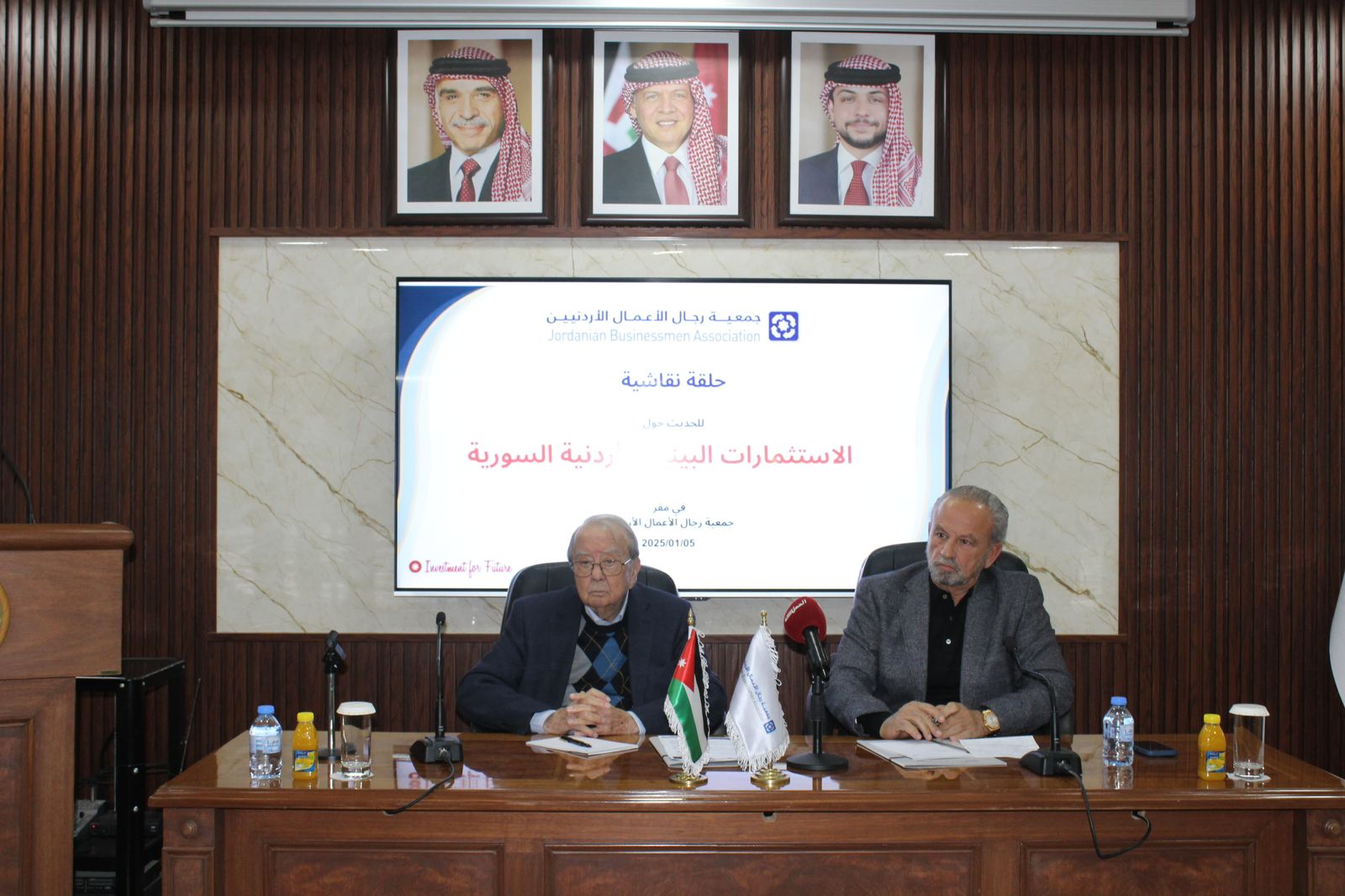Economic experts have highlighted the strategic significance of Jordan’s involvement in Syria’s economic recovery, emphasizing the Kingdom’s geographical proximity, historical ties, and shared interests.
In a discussion hosted by the Jordanian Businessmen Association (JBA), the experts outlined the potential benefits of enhancing bilateral trade and investment, particularly in light of Syria’s ongoing reconstruction, valued at approximately $300 billion.
The session underscored the importance of improving transportation links between the two nations to reduce trade costs, making trade more efficient and cost-effective.
The experts also called for a stronger diplomatic push from Jordan to engage with key international stakeholders in an effort to lift sanctions, such as the “Caesar Act,” and facilitate Syria’s return to the regional economic fold.
Additionally, the session emphasized the need to activate the Jordan-Syria free trade zone, foster collaboration with international partners, and explore new opportunities in the reconstruction sector.
Key sectors identified for potential growth include construction, cement, building materials, pharmaceuticals, organic chemicals, information technology, and banking services.
Despite these opportunities, trade between the two countries has significantly decreased in recent years, with bilateral trade falling from JD472 million in 2011 to just JD129 million in 2023. In 2024, trade volume reached JD92 million in the first ten months of the year.
Hamdi Al-Tabbaa, JBA President, emphasized the urgent need for a comprehensive roadmap to bolster economic and trade relations between Jordan and Syria. He noted that trade is a vital lifeline for both nations and a key connector to European markets.
Al-Tabbaa stressed that Jordan’s business community remains committed to strengthening cooperation with Syria, seeking to expand economic, trade, and investment opportunities, particularly amid the current geopolitical challenges.
He called for increased private sector engagement to foster collaboration and maximize the economic potential of both countries. Furthermore, he underscored the importance of activating business councils and enhancing communication between the private sectors of Jordan and Syria to unlock new opportunities.
Al-Tabbaa concluded by reaffirming Jordan’s openness to Syrian investments and its success in attracting high-quality investments in various sectors, contributing to the national economy. He urged prompt action to build stronger economic ties and facilitate closer collaboration between the two nations.
